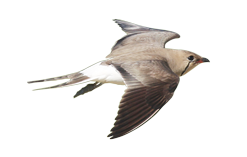Population dynamics of Slender-billed Gull

Objectives
The aim of this project is to identify the mechanisms that affect the population dynamics of the Slender-billed Gull (Chroicocephalus genei) in the south of France. We focus on the causes of the considerable variations in the species’ breeding success from one year to the next, as well as on its dispersal strategies in the context of global changes.
Actions and methodology
This project is based on a long-term study initiated in the Camargue in 1997 by Nicolas Sadoul. Every year, with help from the Friends of the Vigueirat Marshes Association, Slender-billed Gull chicks are ringed with PVC rings that can be read at a distance, just before they leave the nest.
We combine demographic, behavioural, and isotopic approaches to understand how local and global factors affect the reproduction and survival of the gulls.
Several activities have been developed in the framework of the Life+ ENVOLL European project.
Results
Today we have a truly unique database, with more than 40,000 sightings of more than 6000 Slender-billed Gulls ringed in the Camargue.
Team
- Project leader: Arnaud Béchet
- Staff involved: Thomas Blanchon
- Date of project: Since 1991
Partners
Technical partners
- CNRS – Centre d’écologie fonctionnelle et évolutive (CEFE) Montpellier
- Amis des Marais du Vigueirat
- Groupe SALINS
Financial partners
Latest publications
- Acker P., Francesiaz C., Béchet A., Sadoul N., Lessells C.M., Pijl A.S., Besnard A. 2017. Insights on dispersal and recruitment paradigms: sex- and age-dependent variations in a nomadic breeder. Oecologia:1–12. doi: 10.1007/s00442-017-3972-7
- Doxa A., Besnard A., Béchet A., Pin C., Lebreton J.-D., Sadoul N. 2013. Inferring dispersal dynamics from local population demographic modelling: the case of the slender-billed gull in France. Animal Conservation 16:684–693.
- Francesiaz C., Farine D., Laforge C., Béchet A., Sadoul N., Besnard A. 2017. Familiarity drives social philopatry in an obligate colonial breeder with weak interannual breeding-site fidelity. Animal Behaviour 124:125–133. doi: 10.1016/j.anbehav.2016.12.011



